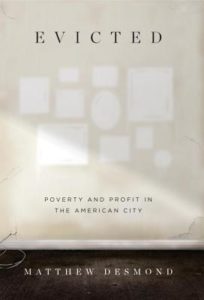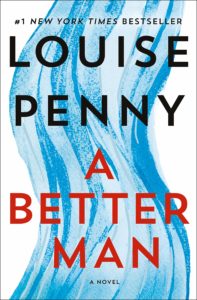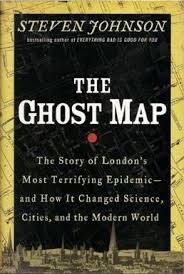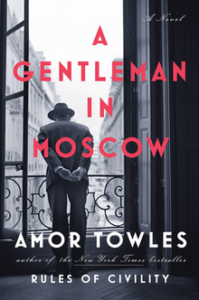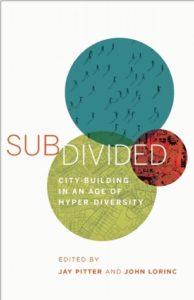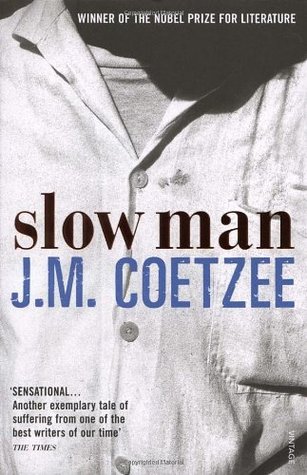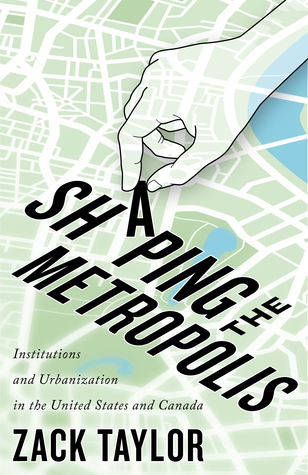As another calendar year draws to a close and the Munk School community prepares for a break, some of our faculty have shared their reading recommendations for your consideration. Explore the list below for material that reveals, informs, amuses and inspires.
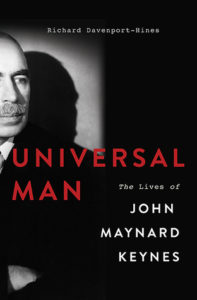 Universal Man: The Lives of John Maynard Keynes (Basic Books, 2015) by Richard Davenport-Hines
Universal Man: The Lives of John Maynard Keynes (Basic Books, 2015) by Richard Davenport-Hines
Recommended by Randall Hansen, Interim Director of the Munk School, Director of CERES, Professor
Acclaimed historian Davenport-Hines gives us a rare glimpse into the life of the economist.
From Hansen: “this is Keynes beyond the economics: tireless public servant, gay lover, public intellectual, consummate persuader, connoisseur of art, international negotiator, and above all passionate European who, quite literally, died preserving the liberal international order.”
Evicted: Poverty and Profit in the American City (Crown, 2016) by Matthew Desmond (pictured)
Fracking the Neighborhood: Reluctant Activists and Natural Gas Drilling (MIT Press, 2015) by Jessica Smartt Gullion
Killers of the Flower Moon: The Osage Murders and the Birth of the FBI (Doubleday, 2017) by David Grann
Recommended by Teresa Kramarz, Director of Munk One, Co-Director of the Environmental Governance Lab and Associate Professor
Kramarz says: Each of these deal with structures of community vulnerabilities that emerge from systemic violence: one from fracking, another from racism, and the last from economic disenfranchisement. They are all non-fiction narratives that are very well written by an epidemiologist, a journalist and a sociologist.
A Better Man: A Chief Inspector Gamache Novel (Raincoast, 2019) by Louise Penny
Recommended by Shiri Breznitz, Associate Professor
In the fifteenth book of the acclaimed mystery series written by Louise Penny, Inspector Armand Gamache returns to Surete du Quebec amidst an onslaught of media attacks, disastrous flooding province-wide, and the mysterious disappearance of a young girl. The book taught Breznitz “a lot about Canada, but especially about the Eastern township, croissants, and hot chocolate.”
The Ghost Map: The Story of London’s Most Terrifying Epidemic – and How it Changed Science, Cities and the Modern World (Riverhead, 2006) by Steven Johnson
Recommended by Joseph Wong, Ralph and Roz Halbert Professor of Innovation
An insightful account of the most intense Cholera outbreak in Victorian London, detailing how Dr. John Snow, through painstaking data collection, sowed doubt about the then-prevailing air-borne theory of bacterium contagion, instead introducing the theory of water-borne disease and its transmission. Wong believes the book importantly demonstrates how social prejudices, norms and biases of the time influenced how people understood data. “Data is both objective truths and social facts, which is important to keep in mind as we enter the age of big – and increasingly hegemonic notions of – data.
A Gentleman in Moscow (Viking, 2016) by Amor Towles
Recommended by Ron Levi, Director of Global Strategy
The book starts with an appearance of Count Ilyich Rostov before an Emergency Committee for Internal Affairs and his subsequent house arrest in a hotel. “An aristocrat consigned to a very small space, you see and enjoy his tastes, habits and concerns up close, all while the world outside is terribly difficult, violent, and messy,” says Levi.
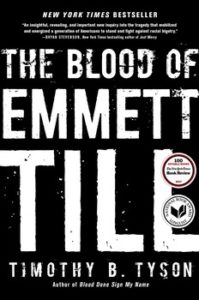 The Blood of Emmett Till (Simon & Schuster, 2017) by Timothy B. Tyson.
The Blood of Emmett Till (Simon & Schuster, 2017) by Timothy B. Tyson.
Recommended by Drew Fagan, Professor
A New York Times bestseller, Tyson’s book re-examines the lynching of Emmett Till by white men in 1955 which helped “spark the modern civil rights movement in the United States.” Insightful and intriguing, this book offers a detailed look into how race informs the institutions of a democratic society.
Subdivided: Building Inclusion into the Global City (Coach House Books, 2016) by Jay Pitter (Editor), John Lorinc (Editor)
Recommended by Gabriel Eidelman, Director of the Urban Policy Lab and Assistant Professor
From Goodreads.com: Using Toronto as a case study, Subdivided asks how cities would function if decision-makers genuinely accounted for race, ethnicity, and class when confronting issues such as housing, policing, labor markets, and public space. With essays contributed by an array of city-builders, it proposes solutions for fully inclusive communities that respond to the complexities of a global city.
Slow Man (Vintage, 2006) by J.M. Coetzee
Recommended by Peter Loewen, Professor
“It’s a complicated story about aging, trust, and adaptation,” says Loewen.
From Goodreads.com: Paul Rayment is on the threshold of a comfortable old age when a calamitous cycling accident results in the amputation of a leg. Humiliated, his body truncated, his life circumscribed, he turns away from his friends.
He hires a nurse named Marijana, with whom he has a European childhood in common: hers in Croatia, his in France. Tactfully and efficiently she ministers to his needs. But his feelings for her, and for her handsome teenage son, are complicated by the sudden arrival on his doorstep of the celebrated Australian novelist Elizabeth Costello, who threatens to take over the direction of his life and the affairs of his heart.
Shaping the Metropolis: Institutions and Urbanization in the United States and Canada (McGill-Queen’s University Press, 2019) by Zack Taylor
Perfect City (Sutherland House, 2019), by Joe Berridge
Recommended by Enid Slack, Director of the Institute on Municipal Finance and Governance
These are two books on cities: in Shaping the Metropolis, IMFG Fellow Zack Taylor analyzes how four cities (Toronto, Vancouver, Portland, and Minneapolis-St. Paul) are able to respond to urban challenges such as sprawl and deteriorating infrastructure. In Perfect City, Munk School Fellow Joe Berridge takes us on a tour of eight world cities (New York, Singapore, London, Manchester, Belfast, Toronto, Sydney, and Shanghai) in his search for the perfect city.
